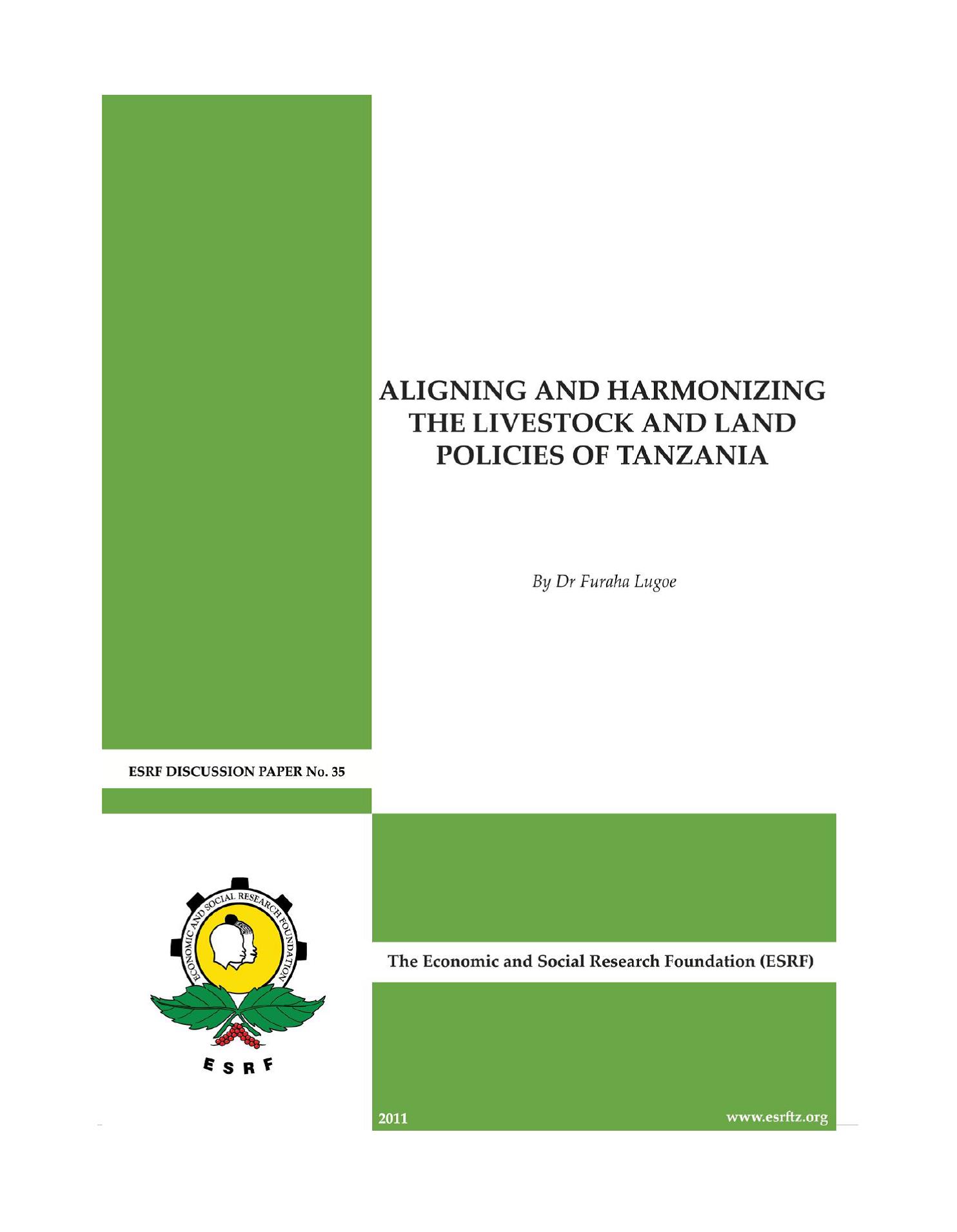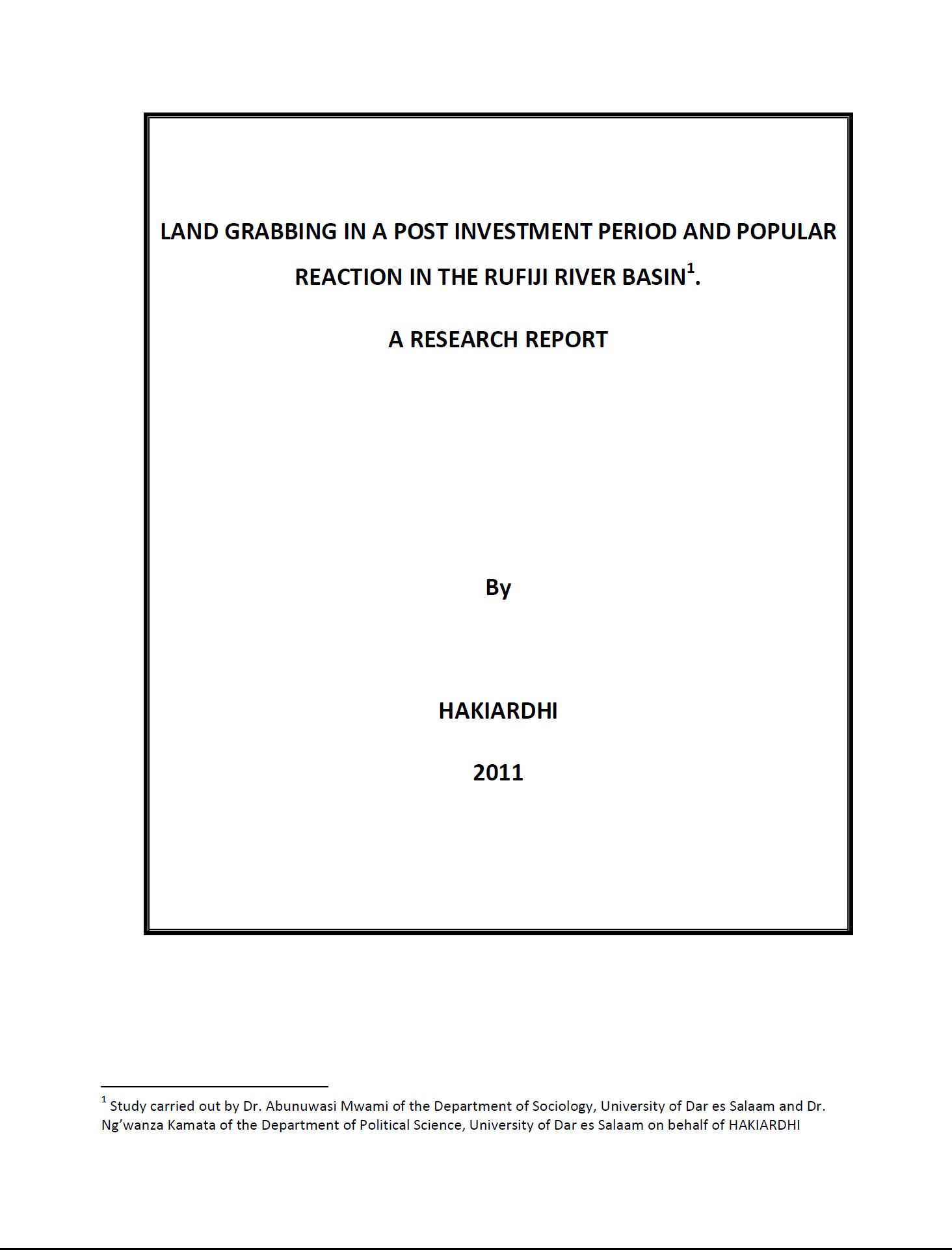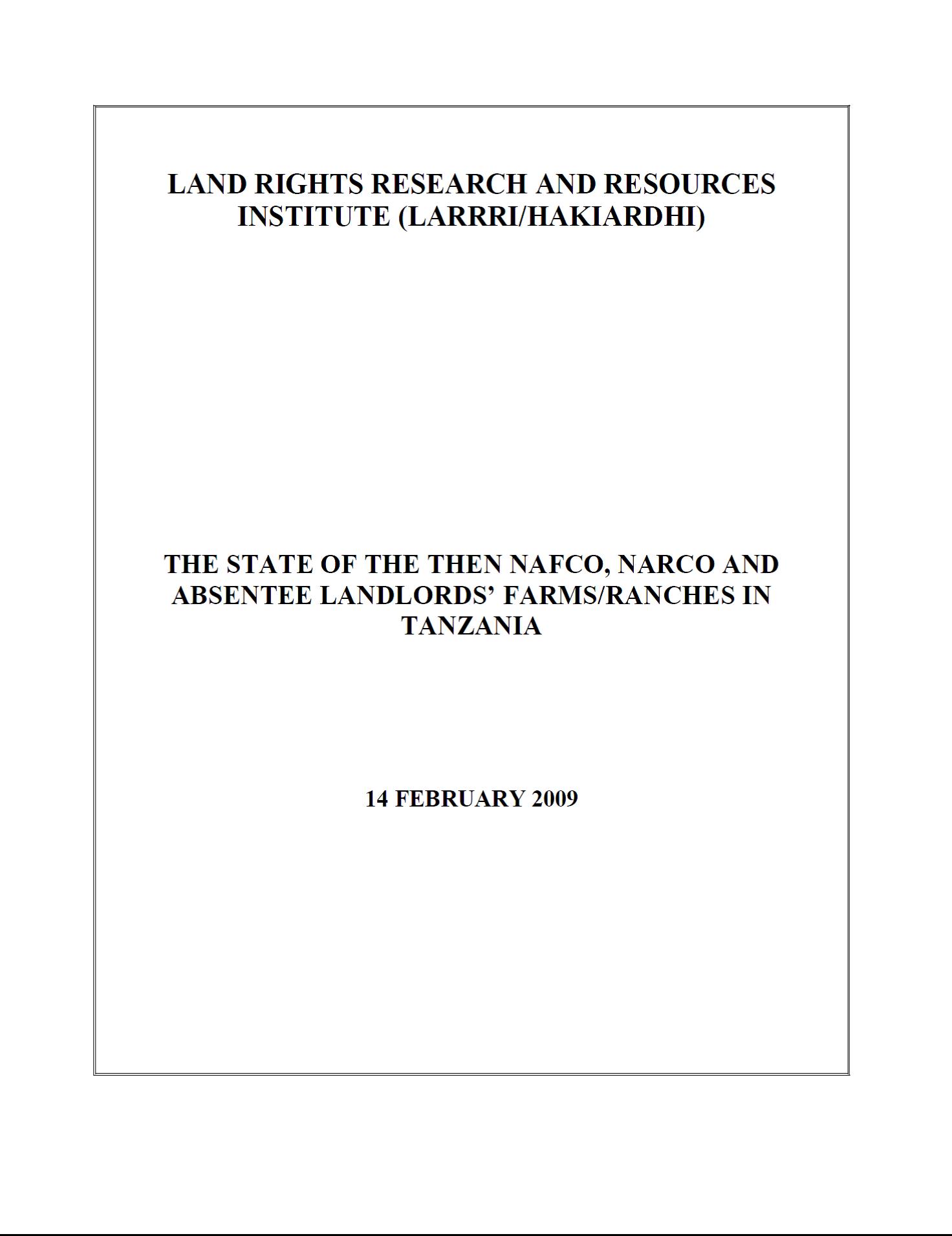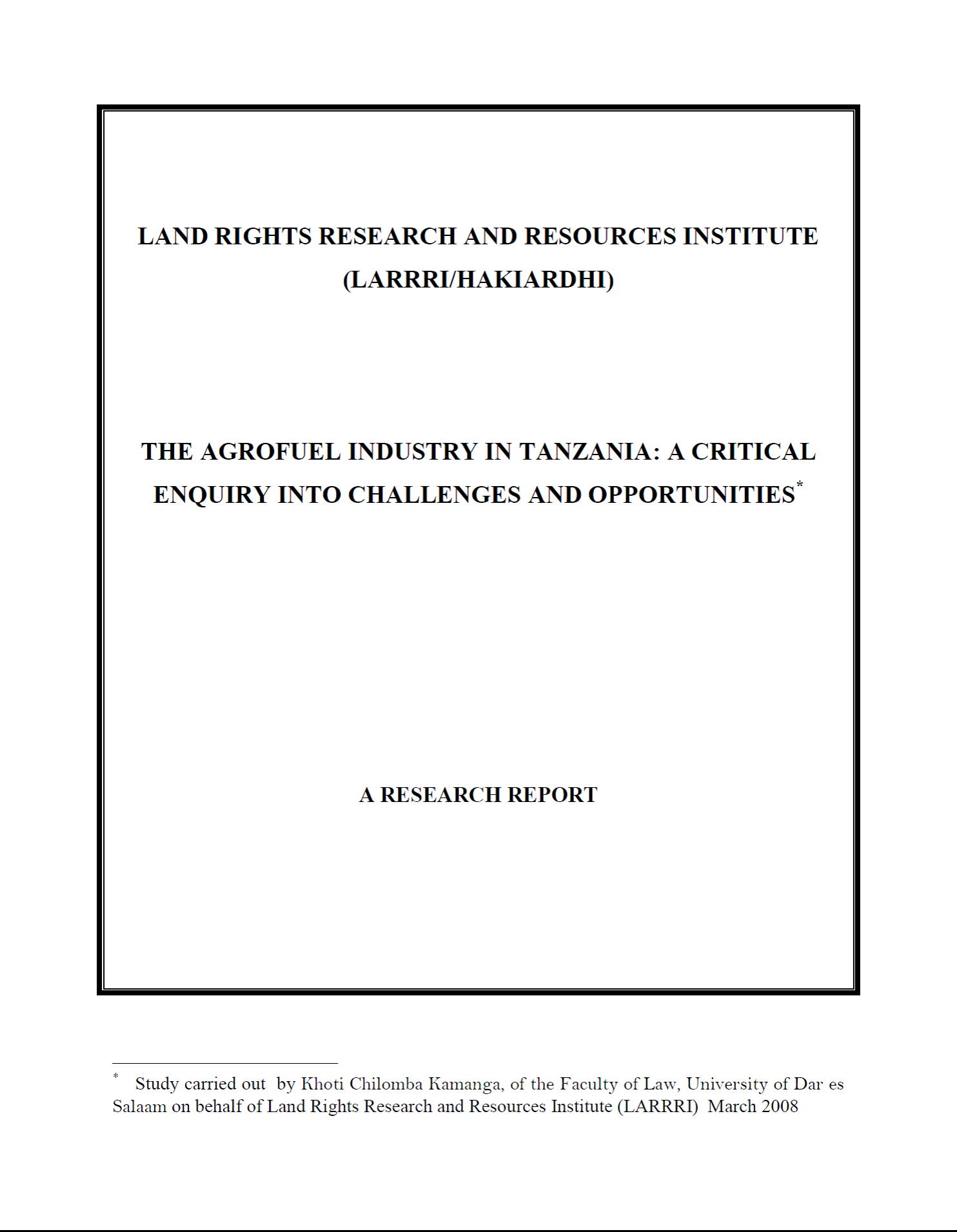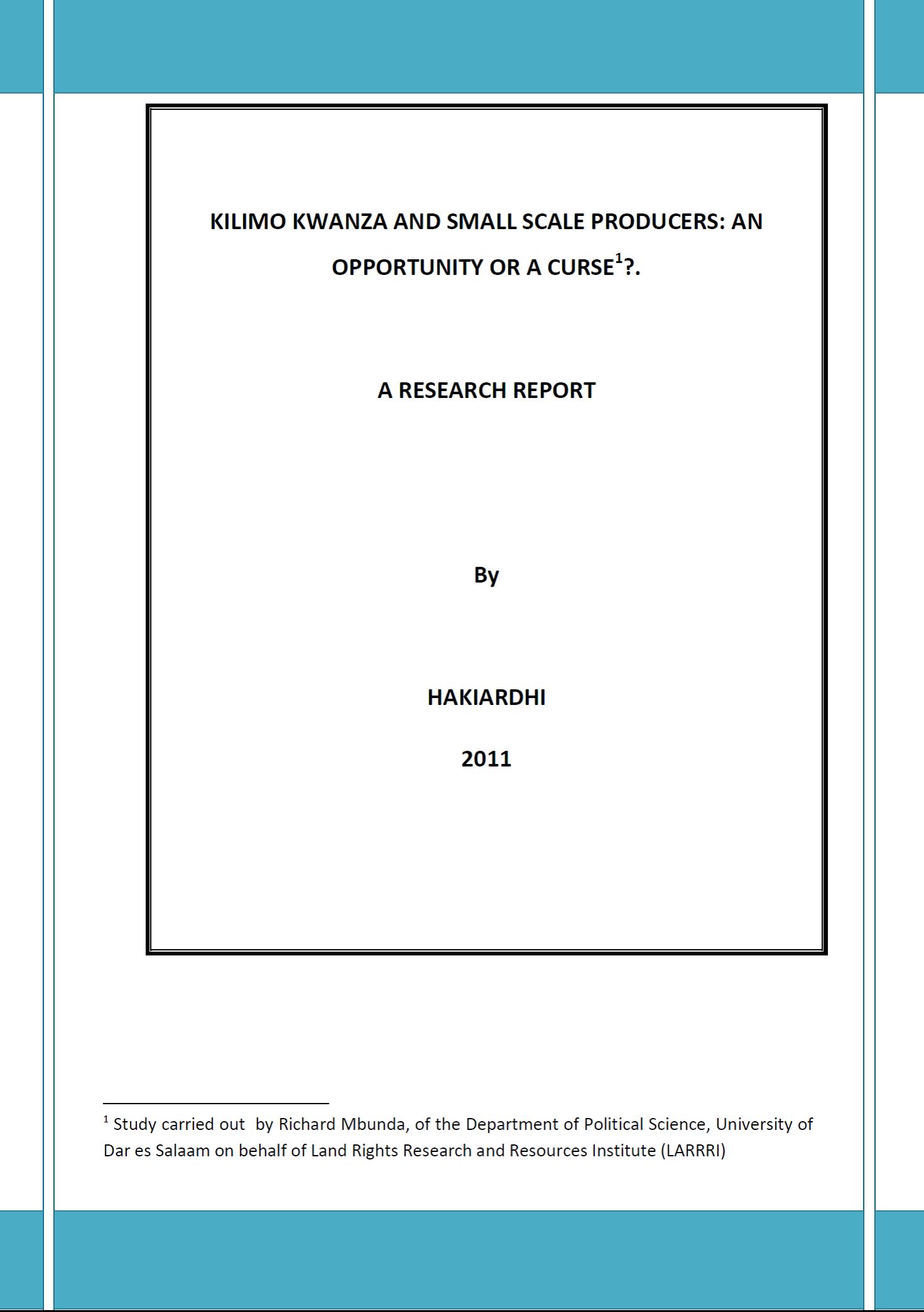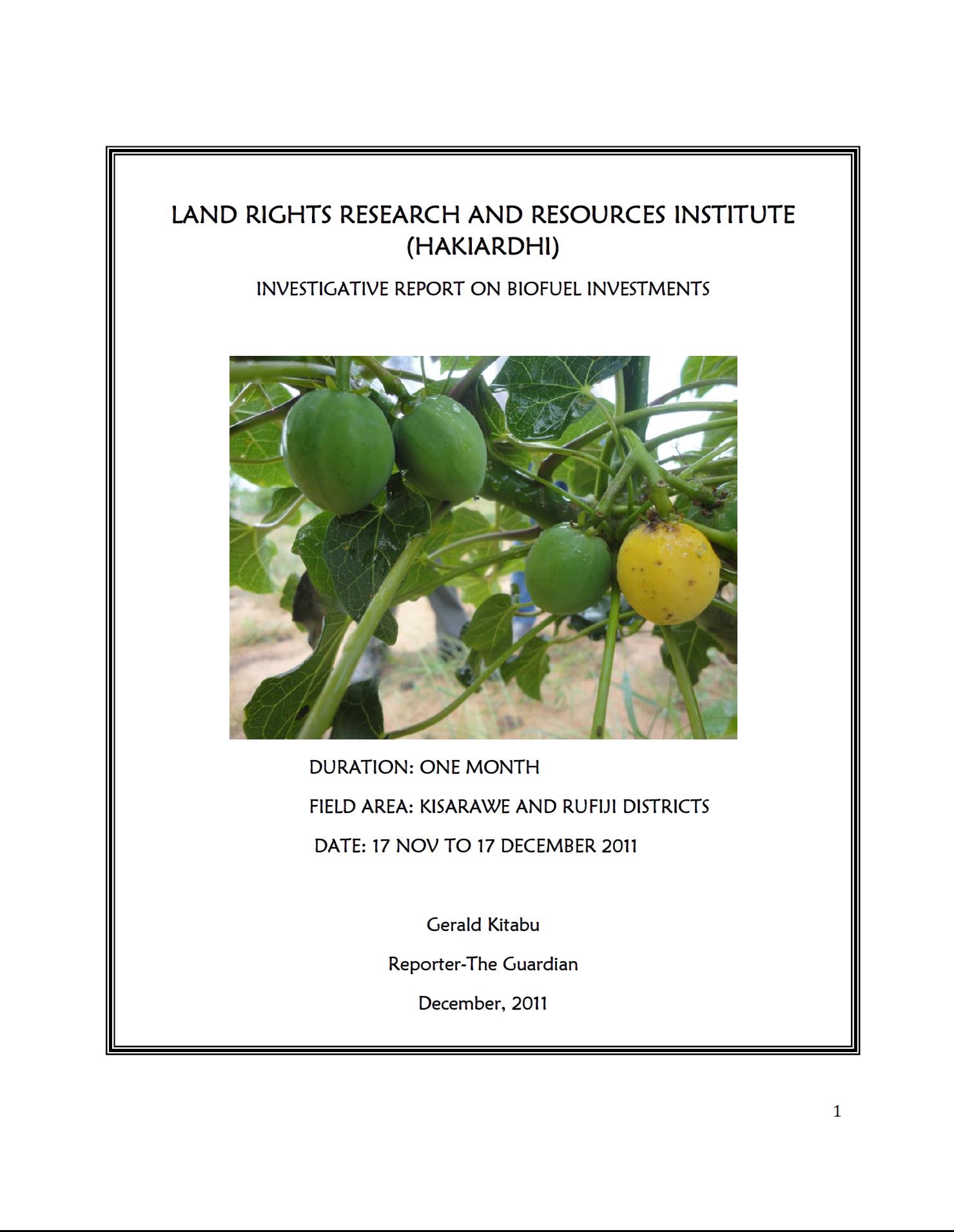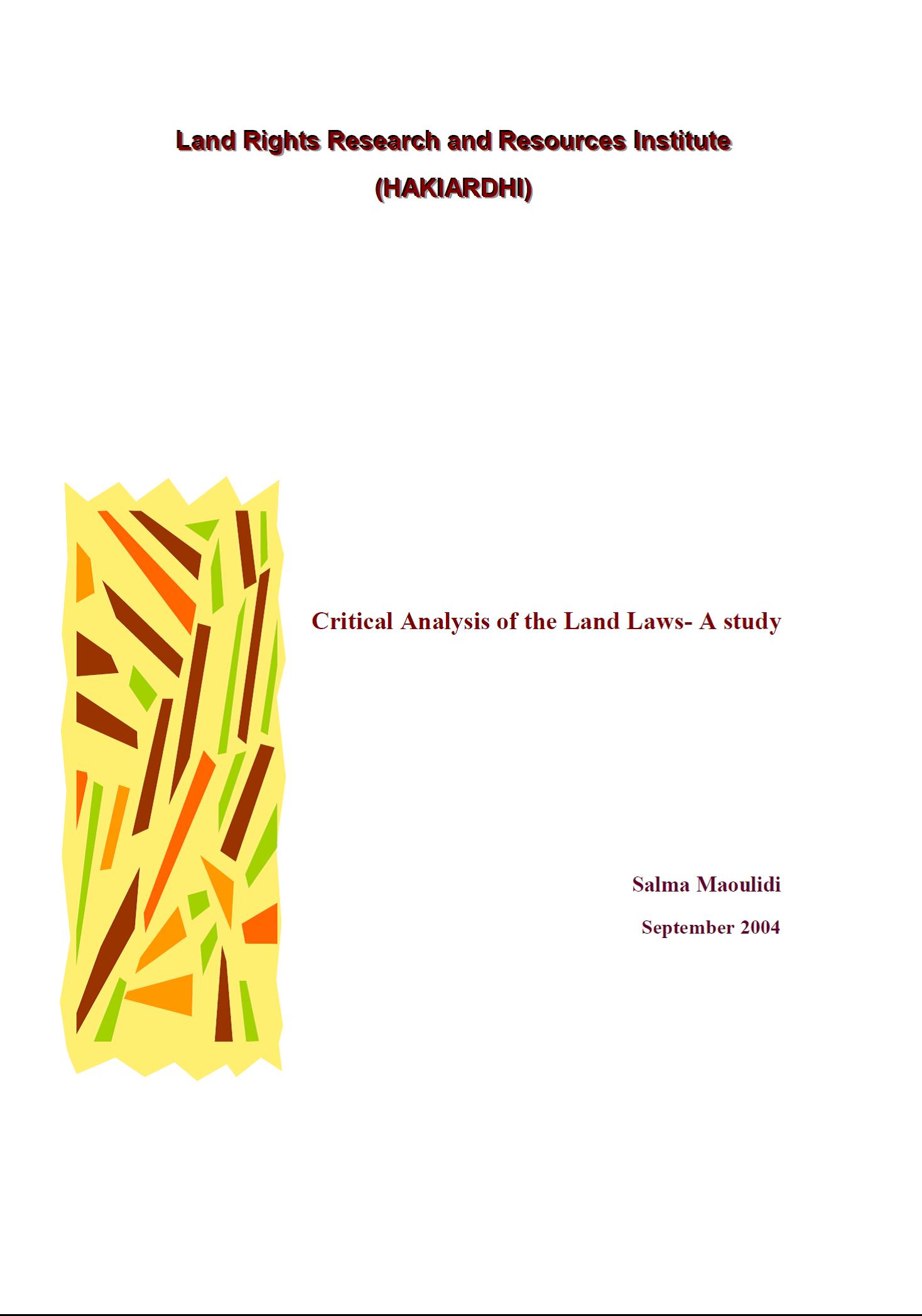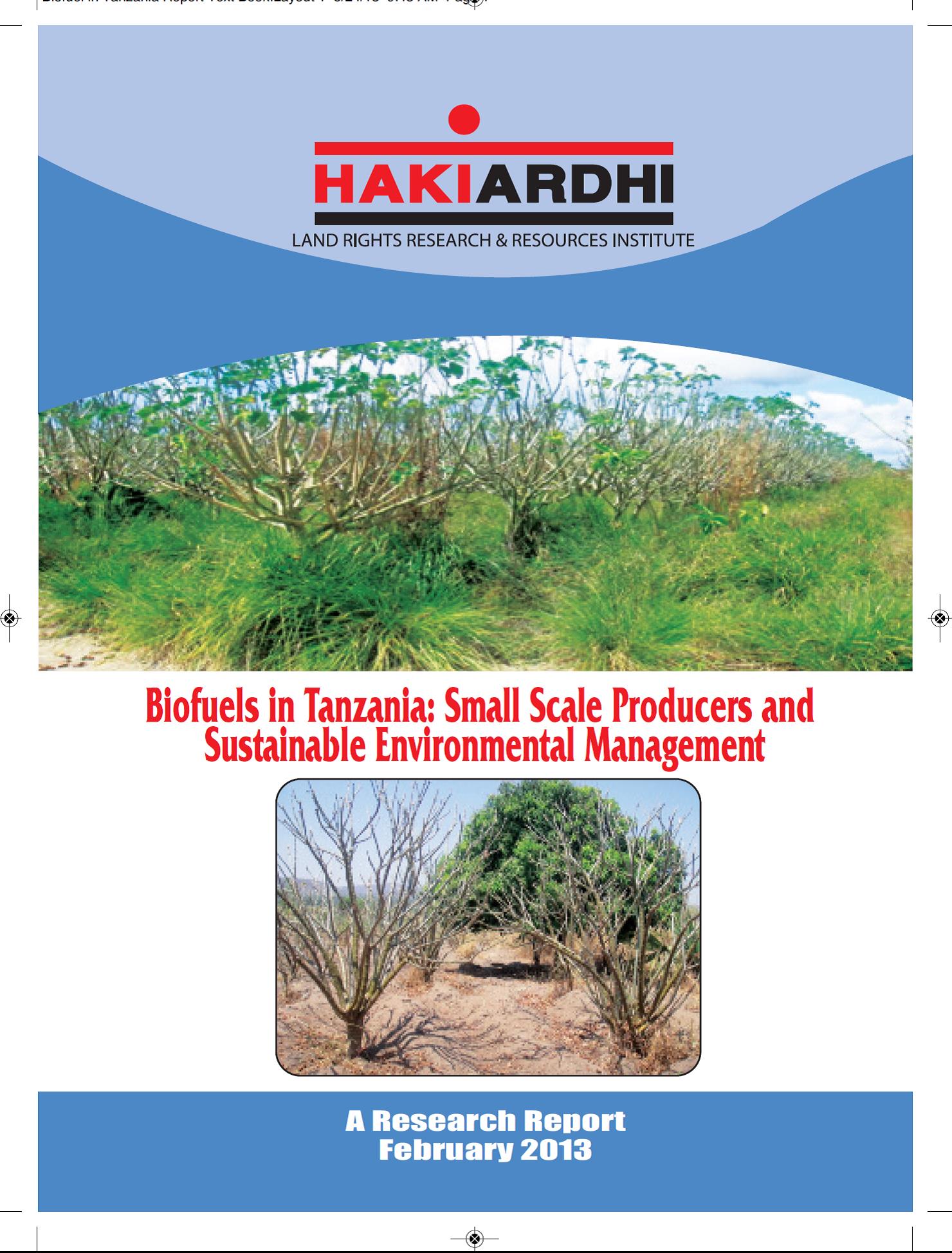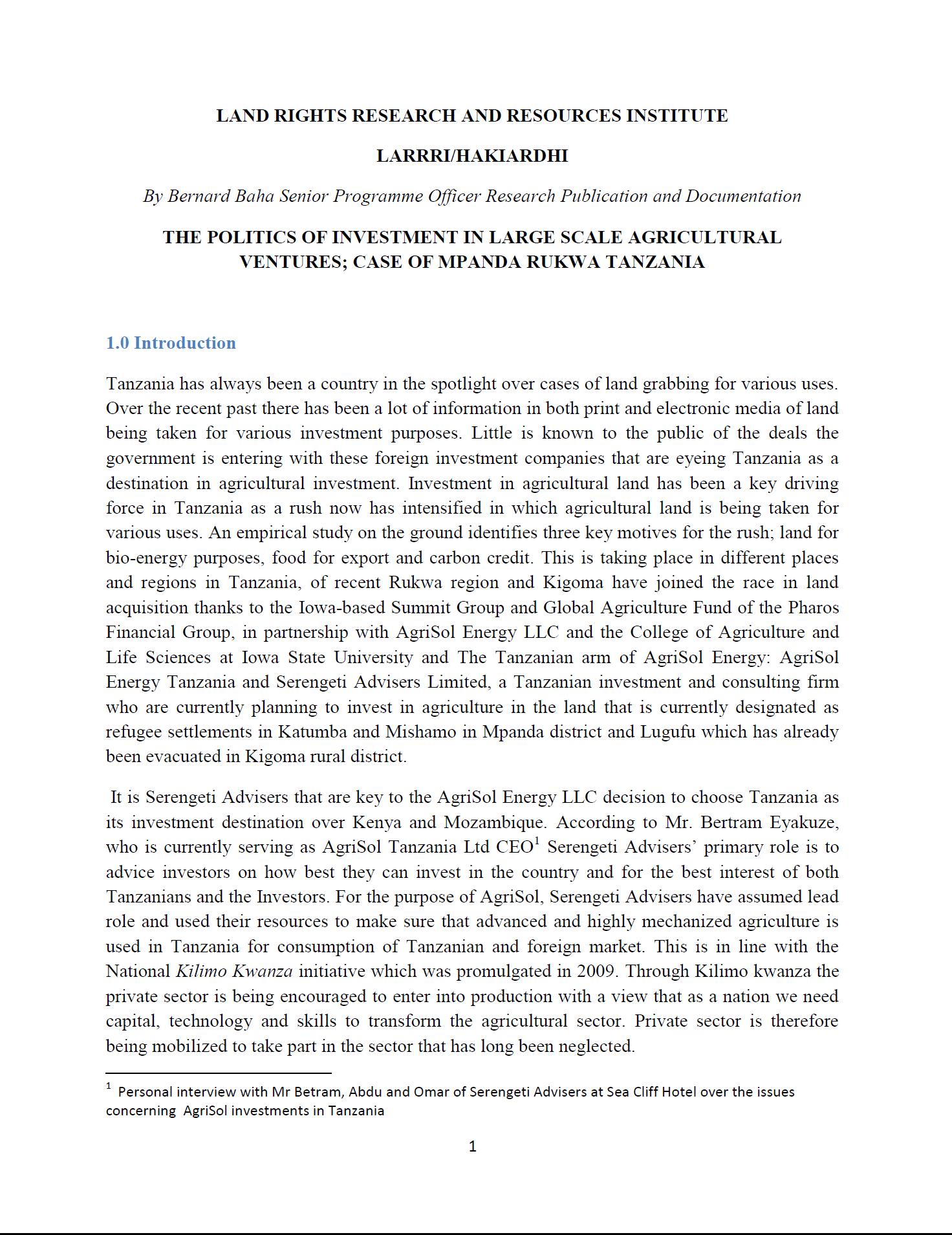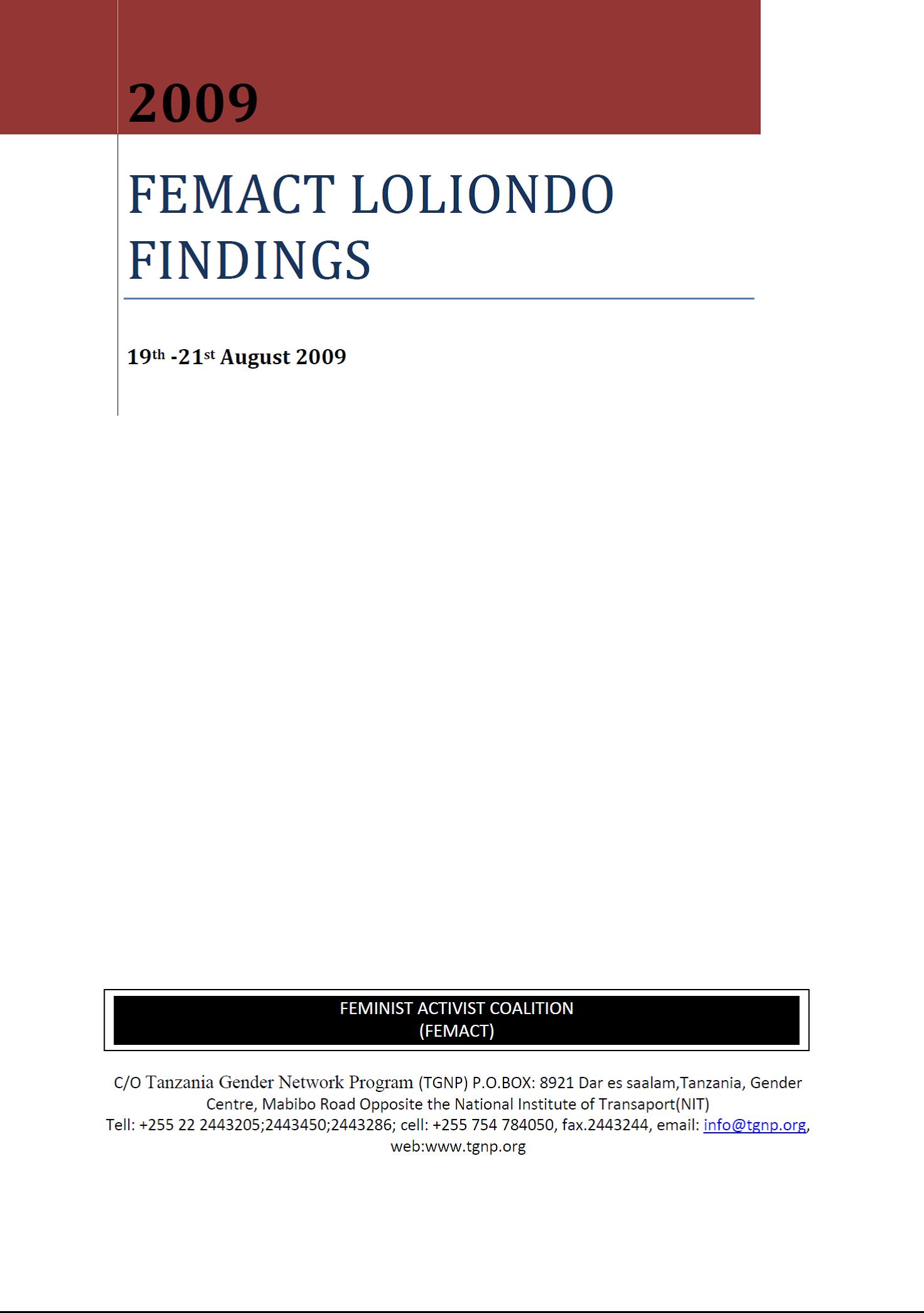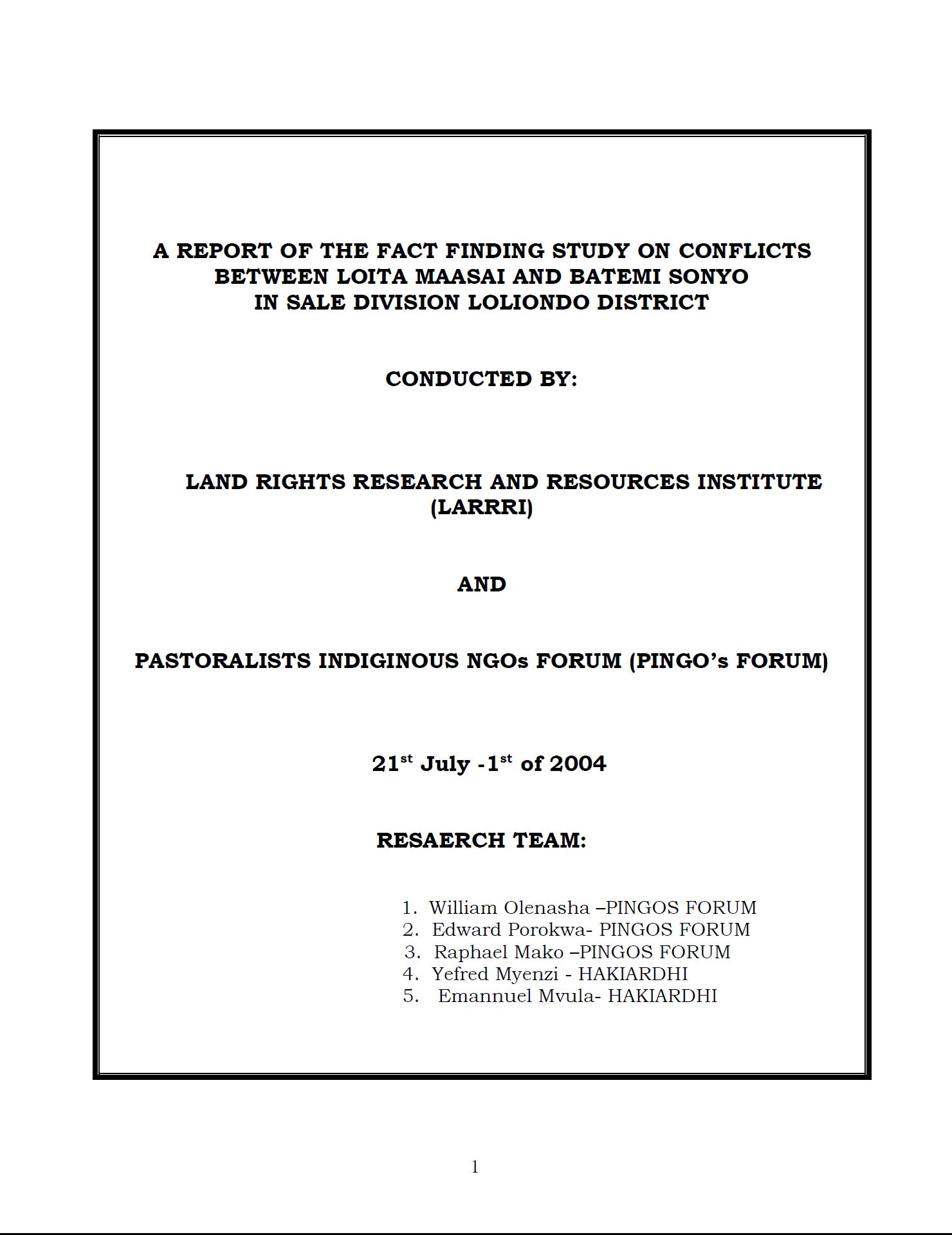Aligning and Harmonizing the Livestock and Land Policies of Tanzania
In light of persisting land use conflicts and marginal productivity on village lands, a research in the captioned topic was deemed necessary. This report makes a review of policies on land and livestock agriculture behind the backdrop of the Constitution of the United Republic of Tanzania, policies on land and agriculture, and aspirations for land reform. Violations in land rights and prevailing tenure insecurity lasting for decades have skewed mindsets of many users and the land administrators. Policy implementation and enforcement are in dire need of enhancement.

